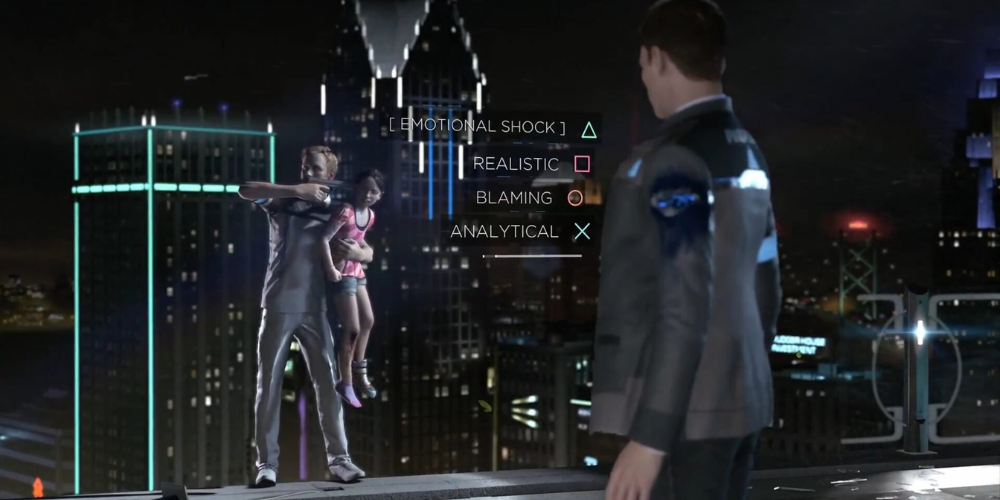Navigating Ethical Crossroads: A Look at Moral Decisions in Role-Playing Games
Jun-23-2024

The Intersection of Ethics and Gaming
In today’s sophisticated gaming universe, Role-Playing Games (RPGs) represent far more than mere entertainment. These immersive digital platforms allow players to engage deeply with multi-faceted narratives, showcasing a remarkable confluence of art, storytelling, and interactive experience. Through this interplay of various forms, RPGs transcend traditional gaming boundaries, offering rich tapestries of plot and character development that invite players to immerse themselves fully in another world.
One of the most compelling aspects of this evolving experience is the degree of autonomy granted to players. Gamers are given the freedom to make choices that not only affect the immediate storyline but also create varying plot directions and multiple potential outcomes. This interactivity elevates the gaming experience, transforming it into a dynamic, living narrative shaped by the player's decisions. Furthermore, the evolution of strategic gameplay within RPGs has introduced a novel dimension: a moral playground where players confront and grapple with ethical dilemmas. Here, the choices made in-game carry a weight that can mirror real-life complexities and moral quandaries.
These decision-making scenarios compel players to reflect on their values and ethics, thus bringing human ethos under the limelight in an unconventional and thought-provoking manner. By integrating these elements, RPGs not only entertain but also challenge and engage players on deeper intellectual and emotional levels, offering an experience that is both richly interactive and profoundly reflective. The genre continues to break new ground, pushing the boundaries of what video games can be and contributing to the ever-evolving landscape of digital art and storytelling.
Roots of Ethical Choices in RPGs
RPGs owe their inception to fantasy literature and tabletop adventure games like "Dungeons & Dragons," where moral ambiguity is paramount. Participants would enact characters and grapple with various moral dilemmas posed by the storyline. The advent of video game technology saw the transposition of these ethical dynamics into the digital realm. Video RPGs now allow players to create a virtual persona and navigate complex moral landscapes, pushing the envelope of gaming beyond mere entertainment.

The Role of Player Autonomy
Player autonomy is an essential feature of RPGs that allows players to exercise their moral agency. Gamers must decide how their avatars interact with other non-playable characters (NPCs), the digital environment, and the situations they encounter. These decisions can range from choosing alliances, determining the distribution of resources, and dealing with conflicting interests to deciding whether to rescue or abandon a companion in peril. Such choices challenge players to reflect on their ethical compass, even in a virtual world.
Narrative Design and Moral Complexity
The ethical complexity of RPGs is deeply ingrained within the narrative design. Developers purposely engineer moral dilemmas to test the player’s decision-making skills and moral judgment. Unlike simpler games, where decisions are typically dichotomous and often revolve around 'right' and 'wrong', RPGs usually present an array of morally ambiguous choices, often blurring the lines between heroism and villainy. Consequently, players are encouraged to delve into their character's psyche and rationale, thus orchestrating a morally complex narrative influenced by their decisions.
The Impact of Ethical Choices on Game Outcomes
In RPGs, the consequences of ethical decisions go beyond the immediate circumstances. They directly influence the course of the game narrative and alter the world's state within the game, sometimes leading to different endings altogether. Actions performed in earlier game stages may also be recalled by other characters later on, thereby crafting an interconnected web of action and consequence, mirroring the cause-effect phenomenon in real life.

Exploring Real-World Ethics in a Virtual Universe
Playing RPGs provides an opportunity to understand how people perceive and act upon ethical dilemmas outside the game’s context. Players often find themselves judging their game characters by real-world morality, arming researchers with valuable insights into human ethics. Consequently, RPGs can be a reliable tool for sociological and psychological analysis, enabling a critical appraisal of how individuals project their moral judgments on the game characters they control.
Controversies Surrounding Ethical Choices in RPGs
Despite the fascinating interplay of ethics in RPGs, it's not without controversy. Critics argue that games may oversimplify complex moral subjects by boiling them down to binary choices. Others posit that some RPG scenarios may normalize troubling behaviors, thereby potentially influencing impressionable players negatively. The subjective nature of ethics further complicates the issue. What's considered ethical in one culture may be deemed otherwise in another, which poses unique challenges when designing RPGs for global audiences.
The Future of Ethics in RPGs
While RPGs have already marked a significant evolution in the incorporation of moral dilemmas, the future holds even more potential. Technological advancements like Artificial Intelligence(AI) and Virtual Reality(VR) will enable developers to create more immersive and responsive gaming environments that adapt in real-time to players' ethical decisions. Integration of advanced technologies will open new avenues, allowing RPGs to continue pushing ethical boundaries and driving conversations about moral complexity.
Summary
This article has journeyed through the fascinating and intricate intersection of ethics and gaming, meticulously examining the roots, narrative design, player autonomy, and impact of ethical choices in role-playing games (RPGs). Within its scope, we discovered that RPGs provide a profound and immersive medium to explore and grapple with various philosophical and moral issues.
These games, through their complex storytelling and interactive nature, allow players to confront and contemplate ethical dilemmas in a way that few other mediums can. However, our exploration also delved into the controversies and potential pitfalls associated with the oversimplification of complex subjects within these digital landscapes.
These oversimplifications can sometimes lead to misrepresentations and missed opportunities for deeper engagement. Despite these challenges, the article highlighted the exciting prospect of harnessing cutting-edge technologies to enhance the depth and authenticity of ethical explorations in RPGs. Innovations in AI, machine learning, and advanced narrative techniques hold the promise of enriching these games even further, providing players with more nuanced and varied ethical scenarios to navigate.
Looking ahead, the future of ethics in RPGs appears bright and full of potential. As developers continue to push the boundaries of what's possible, the genre is poised to not only evolve and remain relevant but also to thrive and make significant contributions to the broader gaming universe. By embracing these advancements, RPGs will continue to be powerful tools for examining the moral fabric of human experience.







